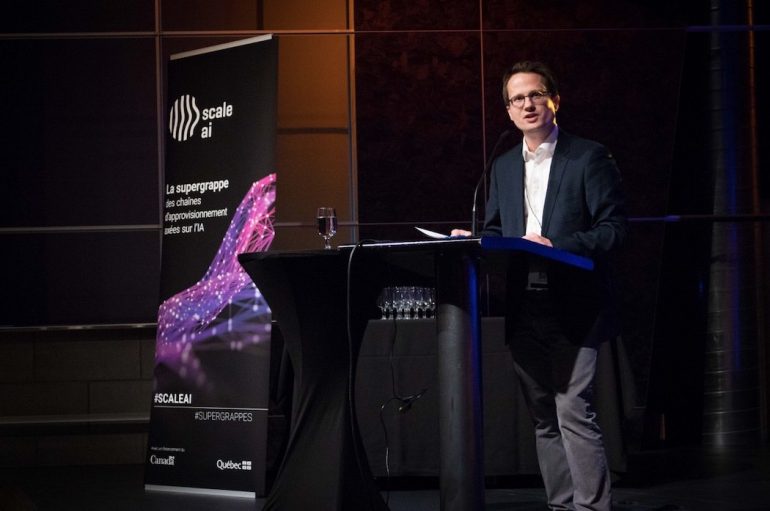On Monday, it was announced that the Government of Québec had granted $23.4 million in funding to Quebec-based Supercluster Scale AI, one of five members of the federal government’s Innovation Superclusters Initiative.
“The objective is to mobilize universities, research centres, and CEGEPS in the main economic centres of Quebec.”
-Hélène Desmarais
The money is additional funding from the Government of Québec for the Supercluster, which received $30 million from its provincial government alongside $230 million from the federal government, late last year. With this new capital, Scale AI’s total funding commitment is more than $280 million.
A spokesperson for Scale AI told BetaKit that currently the Supercluster is primarily funded by government money, with “some funding from memberships.” This is in light of the fact that the federal government funding is meant to be matched by private sector investment. It is unclear how much of Scale AI’s overall funding is private. BetaKit reached out to Scale AI to confirm but had yet to hear back by time of publication.
While it was not disclosed if the new $23.4 million is being received in a lump sum or divided on a yearly basis, Scale AI noted that the funding is meant for the 2019 to 2023 period. The money comes from Quebec’s Ministère du Travail, de l’Emploi et de la Solidarité sociale (MTESS), and is meant to help train Quebec’s workforce in the field of AI.
RELATED: Minister Navdeep Bains announces two superclusters in Quebec
“This tangible support from the Government of Québec will help propel Quebec businesses of all sizes into the future, giving them and [sic] international head-start,” said Scale AI CEO Julien Billot. “SMEs and large companies will be equipped to face the revolution resulting from the introduction of AI. Developing IA [AI] expertise ensures an increase in productivity for our businesses and thus benefits Quebec’s entire territory.”
The $23.4 million from MTESS is dedicated specifically to support Scale AI in training activities for Quebec’s workforce focused on AI-based business challenges, tools, and techniques. More than 25,000 professionals, managers, and executives are meant to take part in the training programs by 2023. The program is built to update the worker’s skills and prepare them to respond to AI-related economic and business transformations. The courses will be delivered by Scale AI’s academic partners, which includes The University of Waterloo, the University of Toronto, University of Alberta, Creative Destruction Lab, Velocity, and other institutions across Canada.
“The objective is to mobilize universities, research centres, and CEGEPS [Quebec’s pre‑university and technical college program] in the main economic centres of Quebec in order to offer a wide array of AI training courses that are adapted to the changing needs of the market for individuals and companies,” said Scale AI board co-chair Hélène Desmarais.
RELATED: Digital Technology Supercluster first to announce projects
“The presence of leading AI researchers, particularly at IVADO, MILA and its affiliated institutions including HEC Montréal, Polytechnique Montréal, Université de Montréal, and McGill University, provides a strong influence and a major vehicle for attracting new talent and leading-edge training,” she stated.
Last month, Scale AI announced the first four projects of its initiative, which will see companies explore ways AI can be used to reduce costs and improve efficiencies across the board in the consumer goods, farming, telecom, and shipping sectors. The Quebec Supercluster became the third to reveal projects since the government announced the winning supercluster proposals almost a year and a half ago. To date four of the five Superclusters have announced projects, with the remaining hold out being Ontario-based Advanced Manufacturing Supercluster.
Image courtesy Scale AI via Twitter.


